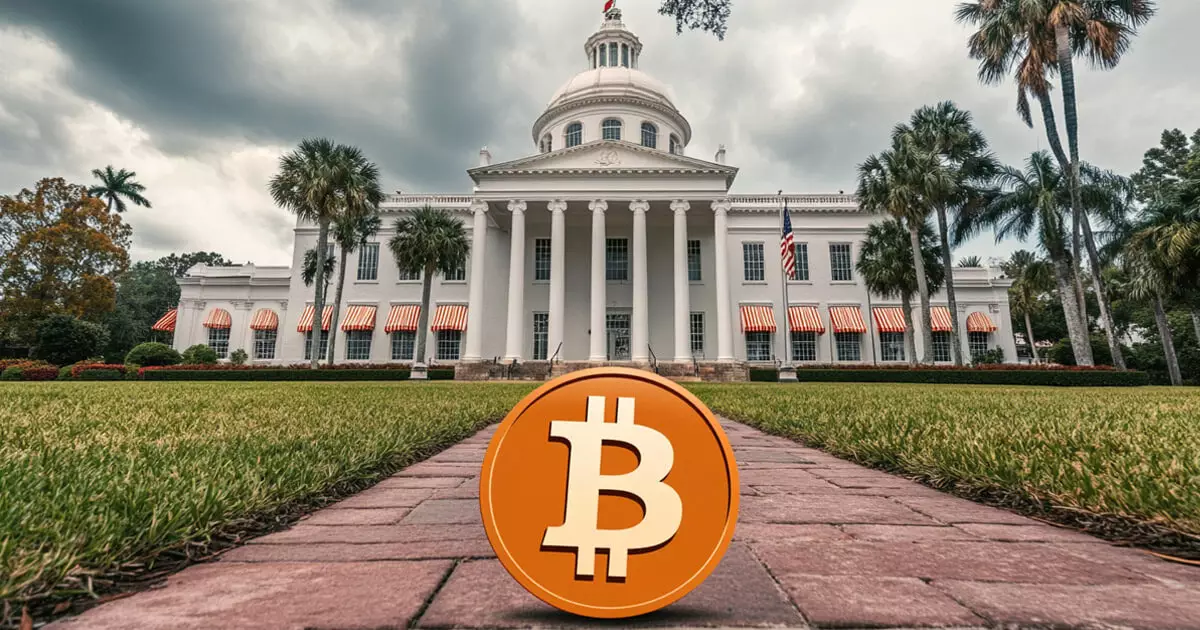In an audacious move that aims to redefine the financial landscape, Florida State Senator Joe Gruters has laid the groundwork for integrating Bitcoin into the state’s financial reserves. His ambition transcends mere investment; it encapsulates a broader vision of economic sovereignty and inflation protection. By advocating for Bill S0550, which permits Florida’s Chief Financial Officer to allocate up to 10% of certain state assets into Bitcoin, Gruters is not just promoting a cryptocurrency but positioning Florida as a pioneering state in the realm of digital finance.
Gruters perceives Bitcoin as more than an asset; he views it as a symbol of freedom and individuality. This isn’t merely about enhancing a retirement fund—it’s about creating a proactive fiscal strategy that aligns with a libertarian ethos. The strategic embrace of Bitcoin aligns with a broader political shift that seeks to distance state finances from traditional monetary constraints, allowing Florida to carve out its unique path in an increasingly digital economy.
Embracing Economic Refugees
Florida’s attractiveness as a haven for what Gruters terms “economic refugees” is a telling reflection of the state’s evolving identity. During the COVID-19 pandemic, many fled to Florida in search of greater financial independence and less restrictive governance. The notion that Florida can attract these individuals through its legitimization of cryptocurrencies speaks volumes about its potential for economic revitalization.
Rather than being seen as a risk, this influx can be harnessed for significant growth. By establishing an environment conducive to Bitcoin and other cryptocurrencies, Florida can be the vanguard of a financial renaissance in which citizens are empowered to take ownership of their fiscal futures. Embracing digital assets provides an opportunity to reshape the state’s economy, making it more adaptable in the face of global economic uncertainties.
A Call for Political Realignment
Gruters’ remarks also signal a seismic shift in political attitudes toward Bitcoin and digital assets. By aligning state policy with the growing national rhetoric surrounding cryptocurrencies, Florida could lead a political realignment towards embracing rather than regulating innovation. With former President Donald Trump’s endorsement of Bitcoin strategies resonating with many constituents, Gruters is strategically positioning Florida to be perceived as a leader in this transformative wave.
However, the reality is complex. Not everyone in the political sphere shares the same enthusiasm for cryptocurrency, given its unpredictability and the vast challenges surrounding regulation. Those who view Bitcoin as a speculative asset may oppose such measures, fearing unchecked volatility could destabilize the state’s financial stability. Thus, the challenge will not only be in implementation but also in fostering a political climate that supports financial innovation without succumbing to panic and fear.
Beyond Financial Returns: A Cultural Shift
The appeal of Bitcoin among Gruters’ supporters goes beyond trivial financial returns; it taps into a deeper cultural ethos of autonomy and personal freedom. As Florida seeks to redefine itself as a “pro-freedom state,” integrating Bitcoin into the public financial infrastructure could resonate strongly with constituents who view digital currencies as a pathway to financial self-determination.
This ideological undercurrent is a powerful motivator and it melds perfectly with the aspirations of a populace increasingly disillusioned by traditional financial institutions. For many, Bitcoin represents an immovable pillar of individual sovereignty—an asset untethered from the political whims of central banks and outdated monetary policies.
Setting a Precedent for Other States
As Gruters envisions Florida as the benchmark for cryptocurrency adoption, the echoes of this daring policy could resonate around the nation. Should Florida successfully incorporate Bitcoin into its financial reserves, other states may feel pressure to follow suit, led by this example of bold economic experimentation. Gruters asserts, “The country really follows us in terms of what we do.” This sentiment reflects a paradigm shift where state governments may act as test beds for innovative financial policies, potentially reshaping economic governance across the United States.
In this light, it’s not just about personal or state-level wealth—it’s about evolving the relationship between citizens and their financial systems. Can Florida really become the Bitcoin capital of the world? The answer lies not solely in policy but in the collective momentum of a populace that actively seeks economic liberation in the face of governmental and institutional constraints. Florida’s gamble on Bitcoin could be a leap into an unpredictable future, but one that invigorates the idea of financial autonomy and reshapes the fiscal landscape for generations to come.














